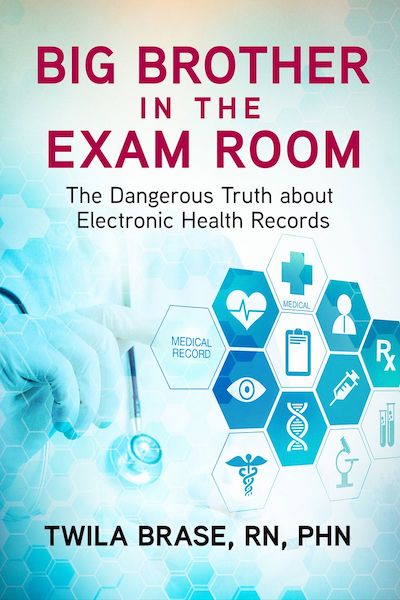medical errors
See the following -
Electronic Health Records: The Good, The Bad And The Ugly
With passage of the Patient Protection and Affordable Healthcare Act, electronic health records have been widely adopted across healthcare organizations large and small. While there are many benefits to EHRs — improved accessibility to patient data, increased charge capture and improved preventative health — there are inherent problems in adopting this technology. Read More »
- Login to post comments
2013 Most Wired
H&HN's 15th annual survey shows U.S. hospitals have made big strides in laying the foundation for robust clinical information systems. The next step: harnessing IT for the real work of improving care delivery. Read More »
- Login to post comments
3 Steps To Improving Medical Data Error Reporting
As is often the case in life, we hope to learn from our mistakes, and not repeat them. The same could be said for our healthcare system. Read More »
- Login to post comments
9 Ways Health IT – Beyond EHRs – Helps Patients
Even among very knowledgeable people, the concept of health information technology is often equated with its most familiar element, “electronic health records.” Adoption of electronic health records are a critical first step to realizing the transformational power of Health IT – but getting out of paper enables even greater HIT capabilities. Read More »
- Login to post comments
A Primer on the Open Source Movement from a Health Care Perspective
 Open source, in myriad forms, has emerged as a significant development model that drives both innovation and technological dispersion. Ignore it at your peril, as did the major computer companies destroyed or totally remade by Linux and free software, or encyclopedia publishers by Wikipedia, or journalists and marketers by social media. The term "open source" was associated first with free software, but it goes far beyond software now. People around the world use open hardware, demand open government, share open data, and--yes--pursue open health. The field of health, in particular, will be transformed by open source principles in software, in research, in consultations and telemedicine, and in the various forms of data sharing all these processes call for.
Open source, in myriad forms, has emerged as a significant development model that drives both innovation and technological dispersion. Ignore it at your peril, as did the major computer companies destroyed or totally remade by Linux and free software, or encyclopedia publishers by Wikipedia, or journalists and marketers by social media. The term "open source" was associated first with free software, but it goes far beyond software now. People around the world use open hardware, demand open government, share open data, and--yes--pursue open health. The field of health, in particular, will be transformed by open source principles in software, in research, in consultations and telemedicine, and in the various forms of data sharing all these processes call for.
- Login to post comments
A Public Health Perspective on ONC's Strategy to Reduce Burden on Physicians
 On November 28, 2018, the Office of the National Coordinator for Health Information Technology (ONC) released a draft Strategy on Reducing Regulatory and Administrative Burden Relating to the Use of Health IT and EHRs for public comment. The strategy aims to reduce the time and effort and improve the functionality of electronic health records (EHRs) for clinicians, hospitals, and other healthcare organizations. This strategy was developed primarily through the efforts of ONC-convened workgroups in response to requirements laid out by Congress in the 21st Century Cures Act (Section 13103). The report itself does not identify who exactly served on these workgroups and what organizations were represented.
On November 28, 2018, the Office of the National Coordinator for Health Information Technology (ONC) released a draft Strategy on Reducing Regulatory and Administrative Burden Relating to the Use of Health IT and EHRs for public comment. The strategy aims to reduce the time and effort and improve the functionality of electronic health records (EHRs) for clinicians, hospitals, and other healthcare organizations. This strategy was developed primarily through the efforts of ONC-convened workgroups in response to requirements laid out by Congress in the 21st Century Cures Act (Section 13103). The report itself does not identify who exactly served on these workgroups and what organizations were represented.
- Login to post comments
AMIA: 10 Ways To Improve EHR Safety, Usability
In response to questions about efficacy and safety of electronic health records, the American Medical Informatics Association published a position paper in its journal outlining 10 ways to reduce errors, imcrease patient safety and improve efficiency. Read More »
- Login to post comments
Avoid EHR 'Backlash' With Better Implementation Processes
Electronic health record "backlash"--the opposition to EHR adoption and Meaningful Use by clinicians and other staff--can be avoided by better planning and implementation, according to a recently published article in EHR Intelligence. Read More »
- Login to post comments
Boston Patients Exposed To Virus Due To Lack Of EHR Training
Thirteen dialysis patients at Boston Medical Center (BMC) were exposed to hepatitis B earlier this year when two nurses from an outside dialysis contractor failed to receive access to the hospital’s EHR system, which would have let them know that an infected patient had used equipment that was then shared with the victims... Read More »
- Login to post comments
CCHF Unveils Book Warning of "the Dangers of Electronic Health Records" at the FreedomFest 2018 Conference
 A new, groundbreaking book from Citizens’ Council for Health Freedom (CCHF) will expose how the mandated, government-certified EHR technology (CEHRT) has negatively affected both doctors and patients. Written by CCHF president and co-founder Twila Brase, RN, PHN, and published by Beaver’s Pond Press...Brase’s extensively researched work shows how and why Congress forced doctors and hospitals to install a data-collecting, command and control surveillance system in the exam room. It also includes the impact of EHRs on privacy, patient care, costs, patient safety and more, according to doctors and more than 125 studies....This week, Brase is unveiling “Big Brother in the Exam Room” at FreedomFest 2018 at the Paris Resort Las Vegas. Brase will be a part of several panels and will introduce the book to fellow freedom-loving patriots who recognize that rights also extend to health care...
A new, groundbreaking book from Citizens’ Council for Health Freedom (CCHF) will expose how the mandated, government-certified EHR technology (CEHRT) has negatively affected both doctors and patients. Written by CCHF president and co-founder Twila Brase, RN, PHN, and published by Beaver’s Pond Press...Brase’s extensively researched work shows how and why Congress forced doctors and hospitals to install a data-collecting, command and control surveillance system in the exam room. It also includes the impact of EHRs on privacy, patient care, costs, patient safety and more, according to doctors and more than 125 studies....This week, Brase is unveiling “Big Brother in the Exam Room” at FreedomFest 2018 at the Paris Resort Las Vegas. Brase will be a part of several panels and will introduce the book to fellow freedom-loving patriots who recognize that rights also extend to health care...
- Login to post comments
CDC Calls Out Antibiotic Prescribing Problems
In a major report today that looked at antibiotic usage, the US Centers for Disease Control and Prevention (CDC) said some clinicians in similar hospital units prescribe triple the amounts, with some making the types of errors that fuel drug-resistance problems that put many more patients at risk. Read More »
- Login to post comments
CDC: Some Hospitals Need Assistance Using Antibiotics Properly (And The New Federal Budget May Help)
[...] In an analysis of several sets of hospital data, gathered by the agency and also purchased from independent databases, the CDC said it found that more than 37 percent of prescriptions written in hospitals involved some sort of error or poor practice, increasing the risk of serious infections or antibiotic resistance. Read More »
- Login to post comments
Collaborative Drugs Management "Reduces Errors By Nearly 80%"
A new, more collaborative approach to medicines management for hospitalised patients has been shown to reduce medication errors by nearly 80%. Read More »
- Login to post comments
Dangers In Electronic Medical Documentation!
Slip-shoddy documentation can lead to disastrous consequences. And more often than not it is hapless patients who pay the price for it. The shocking news of patients dying due to documentation errors, is hitting the headlines more frequently. Though it is easy to lay the blame squarely on EHRs identifying the flaws in the documentation process is even more important. Read More »
- Login to post comments
Digital Health Records’ Risks Emerge As Deaths Blamed On Systems
When Scot Silverstein’s 84-year-old mother, Betty, starting mixing up her words, he worried she was having a stroke. So he rushed her to Abington Memorial Hospital in Pennsylvania... Read More »
- Login to post comments